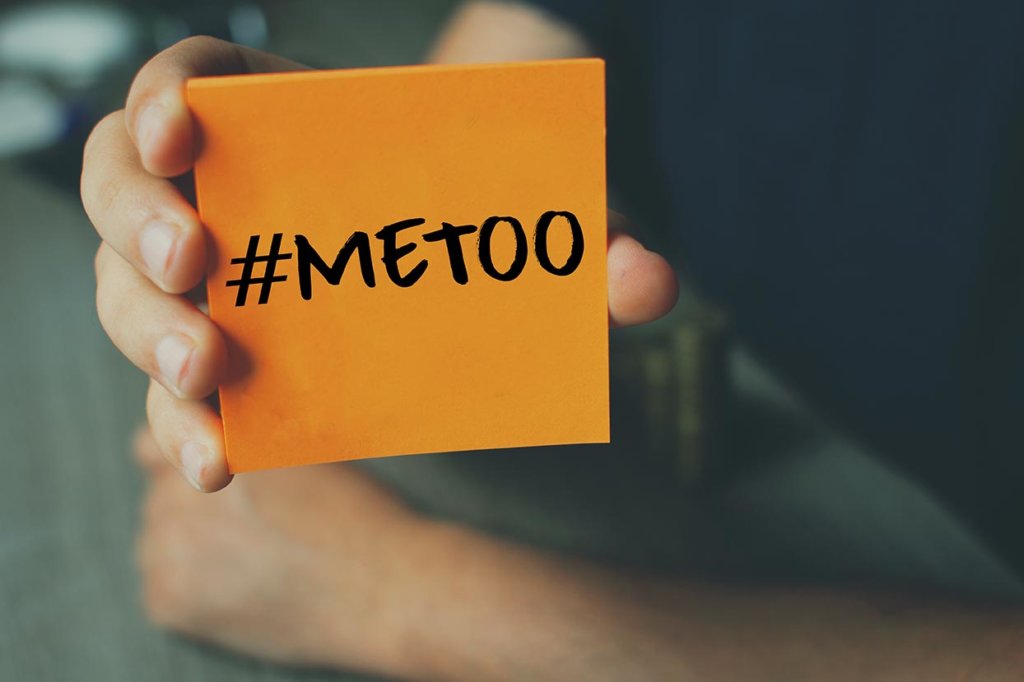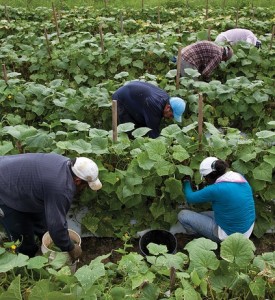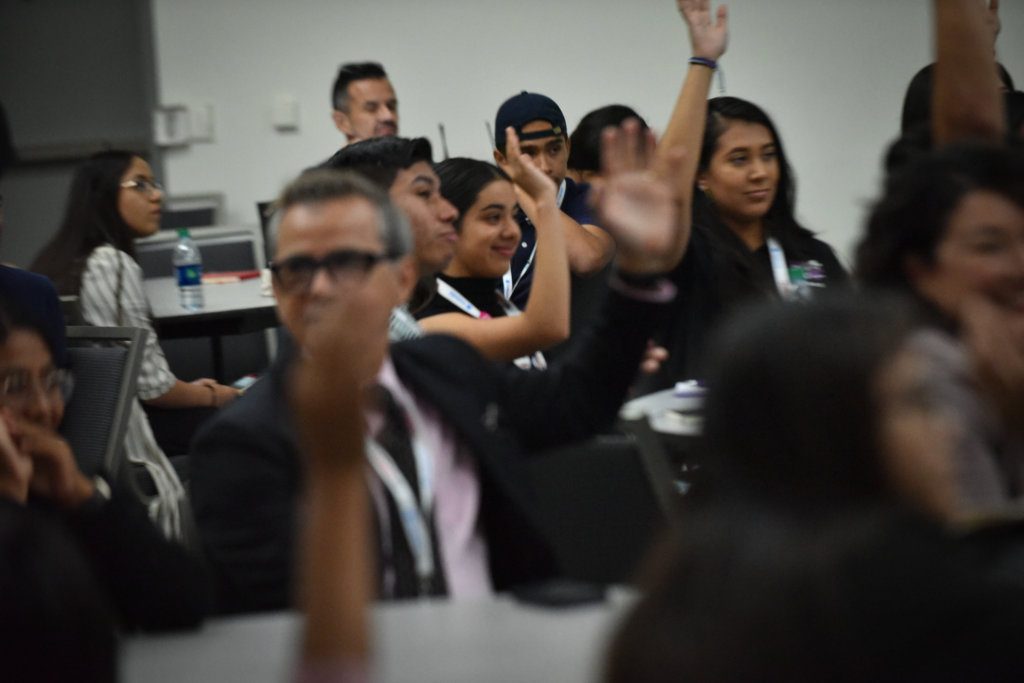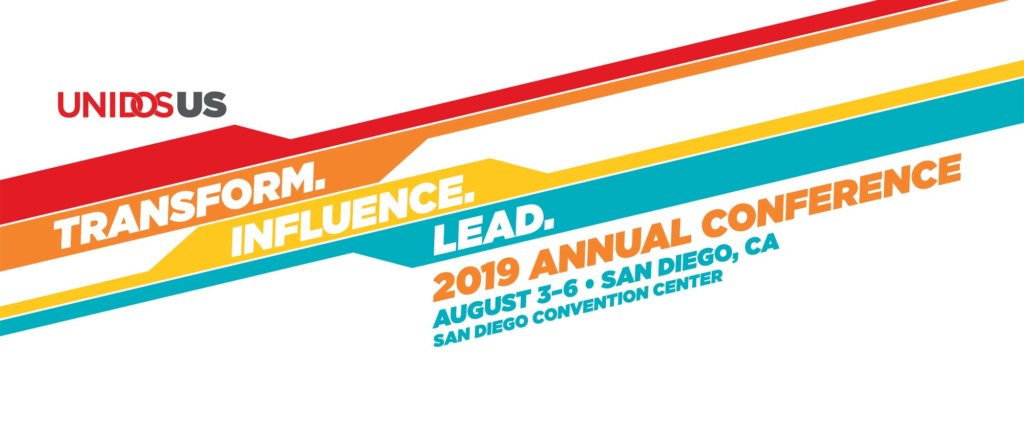Fighting for inclusive leadership: How we can break down barriers in the age of #MeToo
“We cannot pretend that what’s happening in our society isn’t going to be taken back to our work,” said Monica Ramirez, co-founder of the Alianza Nacional de Campesinas, at the Inclusive Leadership: Breaking Down Barriers in the Age of #MeToo session at the 2018 UnidosUS Annual Conference.

The #MeToo movement, which became part of our national discourse last October with the allegations of sexual harassment and assault against Harvey Weinstein, has finally brought thoughtful and productive conversations about sexual harassment in the workplace into the mainstream.
Keep up with the latest from UnidosUS
Sign up for the weekly UnidosUS Action Network newsletter delivered every Thursday.
“There probably isn’t an industry in this country where sexual harassment isn’t a problem,” Ramirez commented.
Having an open and honest conversation about what women need in the workplace can help to foster more inclusive spaces within organizations. Even just speaking more openly can help women realize they are not alone in their experiences. For example, before the Time’s Up movement was launched, Alianza de Campesinas wrote an open letter on behalf of 700,000 Latina farmworkers expressing solidarity with the actresses in Hollywood who had come forward.

In order to foster fairness and collectiveness in the workplace, Isela Gracian, President of East Los Angeles Community Corporation, said that organizational culture should be aspirational and reflect the world that we want to see.
She acknowledged that for much of her life when she imagined a leader she would always envision someone who was White and male. “There are structures that show us what it means to be successful, and what that looks like,” Gracian told the audience.
It’s a critical time, especially during this difficult political climate, to have these conversations. As a civil rights organization in our 50th year, we at UnidosUS want to make sure all voices are heard and that consistent progress is being made.
WE’RE ALL CONNECTED
“All of us are connected, and we all have a role to play,” Ramirez said at the outset of the session. She made a point of stressing that when Tarana Burke founded the #MeToo Movement in 2006, it was intended to address sexual violence more broadly throughout society.

In recalling this fact about the #MeToo Movement, Ramirez was making the point that issues of sexual violence exist within the home, within workplaces, and within all of our communities. Because of this, we cannot separate them from each other.
“What happens at home impacts at work. What happens in the community impacts at work,” Ramirez explained.
She noted that the No Más Study produced by Lake Research Partners looked at experiences of domestic violence and sexual violence within the Latino community. She flagged some of its disturbing findings, such as the fact that more than half of Latinos (56%) in the United States know a victim of domestic violence. If you look at Latinas, the figure becomes two-thirds, or 63%. Additionally, more than one-third of Latinas (35%) know a victim of sexual assault.
“This is a pervasive problem within our community,” Ramirez added.
Within the Latino community specifically, there is a belief that fear, as well as risking deportation, is the primary reason why victims in the community don’t come forward. This violence—which may go unreported—can have a long-lasting impact.
“As managers and leaders in our communities, we need to be conscious of that,” Ramirez said.
UNDERSTANDING OPTIONS
Gracian posed several strategies for more inclusive staff development in the workplace, such as utilizing arts and culture through our nonprofit work. One of the examples she cited was creating a staff mural together, noting that it helped employees think through how they wanted to work together.
Did you know that @WeAreUnidosUS created a policy requiring gender parity on all of their boards in 1972? They were ahead of the times. Folks have a lot to learn from their 50 years of leadership. Happy to be @ their annual conference to listen, learn & celebrate. #UnidosUS18 pic.twitter.com/YE7mocsjvY
— Monica Ramirez (@MonicaRamirezDC) July 7, 2018
Ramirez also noted that it’s important for people to know what their basic rights are. She quizzed the audience to see if they could correctly identify the federal law that prohibits sexual harassment (Title VII), what else was prohibited under federal anti-discrimination law (discrimination based on disability, age, sex, retaliation when making a complaint), and some other forms of gender discrimination (pregnancy discrimination, equal pay violations, gender segregation (particularly notable in the agricultural sector).
Ramirez also emphasized that it is illegal under federal law for employers who have 15 or more employees to retaliate, and that making that known to employees could potentially make it easier for whistleblowers to report on particular behaviors, even if they may be fearful of coming forward. She advised employees working in smaller businesses (less than 15 employees) to be aware of any state laws that may be relevant.
For her part, Gracian noted that leadership is important for organizational transformation. An audience member asked how to affect change from the bottom up instead of the top down. Gracian suggested that there are influencers throughout the organization that can called upon to help bring about change.
Ramirez shared that at an organization where she worked, when staff inquired about wanting more mental health resources, top leadership looked to their staff to determine what steps they could take and what exactly the employees wanted.
Both Gracian and Ramirez invited participants toward the end of the session to imagine resources they may find helpful for addressing issues of sexual violence and creating an inclusive workplace where everyone can thrive. It was heartening to see a plethora of ideas in the room, especially since the conversation around inclusivity in the workplace is far from over.
“It’s not one workshop, it’s not one session, it’s ongoing,” Gracian said.
By Stephanie Presch, Content Specialist, UnidosUS
RELATED CONTENT
https://medium.com/@WeAreUnidosUS/facebook-mess-shows-why-we-need-to-talk-about-techs-diversity-problem-eeca60364cfa


